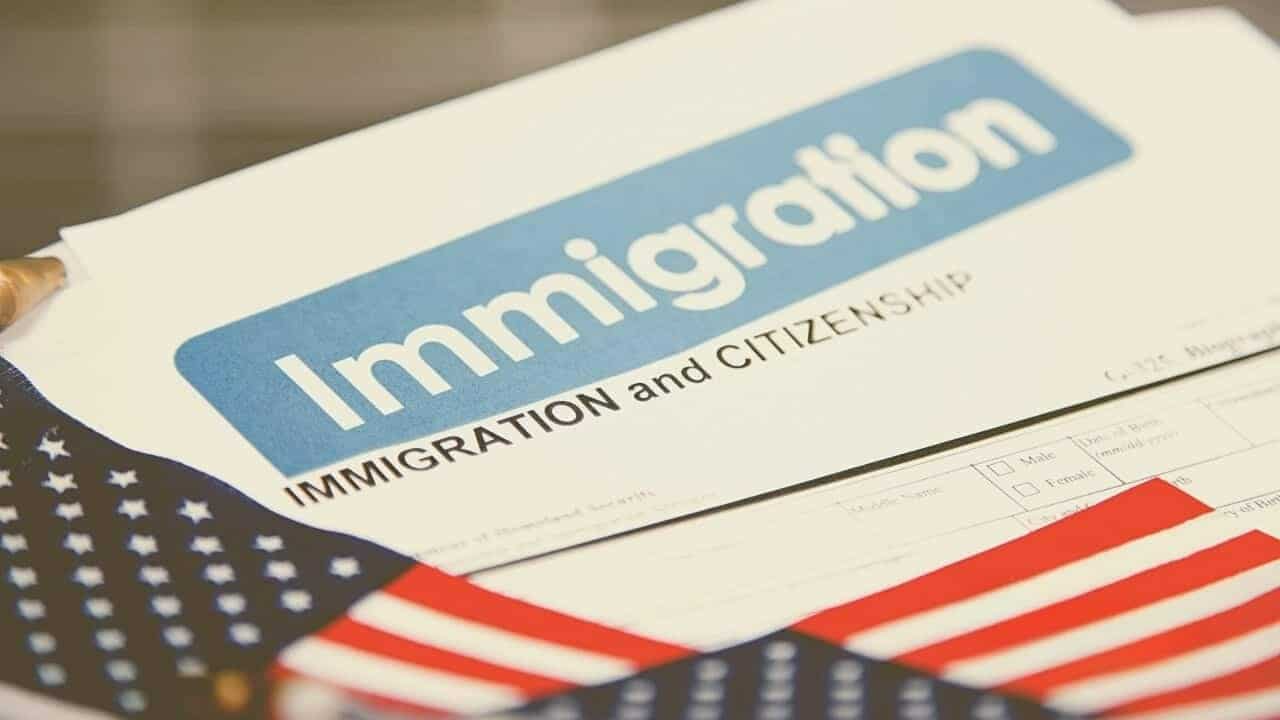In re Marriage of Bychina, 2021 IL App (2d) 200303 (June 18, 2021), Elena, the Petitioner in this Illinois divorce case, had recently come to this country from Russia. On her immigration form, Boris, her husband, indicated a promise to support her if she came to this country. When Elena wanted to come into the United States, she had to prove she could support herself. Under section 213A of the Immigration and Nationality Act, Boris filled out the Department of Homeland Security United States Citizenship and Immigration Services Form I-864 (Affidavit of Support), which essentially said he would be financially responsible for her.
The reason for this contract between Boris and the U.S. government is to prevent immigrants from coming to this country and then requiring the government to financially support them. Boris promised with the execution of this form, that Elena would not need government assistance because he promised to pay for her as an immigrant to this country.
Then came the divorce and now of course he does not want to be financially responsible for her. When Elena filed for divorce, she included in her petition, a count for breach of a federal contract under which the husband had promised to support her. The trial court acknowledged that it could reach the merits of the breach of contract count but declined to do so and directed Elena to seek relief in federal court.
The couple first met in Russia
Elena was thirty-two years old when she met Boris in Russia, who was then fifty-five years old. Boris returned to the United States, but they continued their relationship. The parties continued their relationship long-distance until Boris proposed marriage. Elena was able to come to the United States under a K-1 visa, which is known as a “fiancée visa.”
Immigration Services Form I-864
The couple was married on March 9, 2015. After the marriage, Boris executed a Department of Homeland Security United States Citizenship and Immigration Services Form I-864 (Affidavit of Support) under section 213A of the Immigration and Nationality Act. Pursuant to that contract, he promised to support her at an income level of at least 125% of the federal poverty level and to reimburse any government agencies for certain means-tested benefits paid to Elena.
1183a. Requirements for sponsor’s affidavit of support
(a) Enforceability
(1) Terms of affidavit
No affidavit of support may be accepted by the Attorney General or by any consular officer to establish that an alien is not excludable as a public charge under section 1182(a)(4) of this title unless such affidavit is executed by a sponsor of the alien as a contract-
(A) in which the sponsor agrees to provide support to maintain the sponsored alien at an annual income that is not less than 125 percent of the Federal poverty line during the period in which the affidavit is enforceable;
(B) that is legally enforceable against the sponsor by the sponsored alien, the Federal Government, any State (or any political subdivision of such State), or by any other entity that provides any means-tested public benefit (as defined in subsection (e) 1), consistent with the provisions of this section; and
(C) in which the sponsor agrees to submit to the jurisdiction of any Federal or State court for the purpose of actions brought under subsection (b)(2).
(2) Period of enforceability
An affidavit of support shall be enforceable with respect to benefits provided for an alien before the date the alien is naturalized as a citizen of the United States, or, if earlier, the termination date provided under paragraph (3).
(3) Termination of period of enforceability upon completion of required period of employment, etc.
(A) In general
An affidavit of support is not enforceable after such time as the alien (i) has worked 40 qualifying quarters of coverage as defined under title II of the Social Security Act [42 U.S.C. 401 et seq.] or can be credited with such qualifying quarters as provided under subparagraph (B), and (ii) in the case of any such qualifying quarter creditable for any period beginning after December 31, 1996, did not receive any Federal means-tested public benefit (as provided under section 1613 of this title) during any such period.
(B) Qualifying quarters
For purposes of this section, in determining the number of qualifying quarters of coverage under title II of the Social Security Act [42 U.S.C. 401 et seq.] an alien shall be credited with-
(i) all of the qualifying quarters of coverage as defined under title II of the Social Security Act worked by a parent of such alien while the alien was under age 18, and
(ii) all of the qualifying quarters worked by a spouse of such alien during their marriage and the alien remains married to such spouse or such spouse is deceased.
The Divorce Case and Promise to Support
The trial court wanted Elena to pursue the contract between Boris and the government in federal court. But the statute clearly says that the sponsored immigrant may seek enforcement of the sponsor’s promise to support through the filing of a civil action in any appropriate court. Boris’ obligation ends if he or Elena dies. Further, the sponsor’s obligations end if the sponsored immigrant:
- becomes a United States citizen,
- has worked or can be credited with 40 quarters of coverage under the Social Security Act,
- no longer has lawful permanent resident status and has left the United States,
- becomes subject to removal but obtains a new grant of adjustment of status based on a new affidavit, or
- dies.
Wife’s Divorce Petition Alleged Breach of Contract
In Elena’s divorce petition, she included a count for breach of contract, alleging that Boris breached his promise to her, as a third-party beneficiary, under the Affidavit of Support, where he canceled her medical insurance and had failed to financially support her. Elena pled that she was a full-time student at the College of DuPage, was not employed, and did not expect to gain full-time employment at any point in the near future. Boris, on the other hand, worked as an independent contractor truck driver for an interstate transportation company.
Elena said that she would not be able to become a United States citizen until the end of 2022 or later, and then only if she gained the requisite knowledge and command of the English language.
Husband Asserts Affirmative Defense of Fraud
Boris answered the petition for dissolution and raised the affirmative defense of fraud. Boris claimed that he had been fraudulently induced into the marriage, stating Elena only sought to be a U.S. citizen. Boris said that Elena never intended to live as husband and wife with him, have children, or remain married once she became a permanent U.S. resident.
A Judgment of Dissolution is Granted
On May 8, 2020, the trial court dissolved the parties’ marriage but would not grant Elena’s breach-of-contract count and directed her to seek that relief in federal court. In extensive written findings, the court noted that the parties’ marriage was of short duration, there were no children and virtually no assets, and there was modest debt; the central issues were maintenance and the Affidavit of Support. Since the marriage was short in duration, Elena did not qualify for maintenance.
Wife Argued She Was a Third-party Beneficiary of the Affidavit of Support
The trial court noted that Elena had argued that the court had jurisdiction to decide the contract count, because she was a third-party beneficiary of the Affidavit of Support, however, the court stated that the issue before it was not whether the court “could” decide the issue but whether it “should” do so. The trial declined to decide the issue and felt that the federal court was more appropriate to decide the issue.
The Appeal
Elena appealed and the only issue of her appeal was the trial court’s refusal to hear her contract claim. The appellate court reversed the trial court’s ruling and remanded it back to the trial court with directions to review the merits of her claim.
Elena, and people in similar situations, are not high-income earners, and to require them to start two separate cases in two different courts would be very costly, and as a result, they likely would not be able to pursue the second claim.















